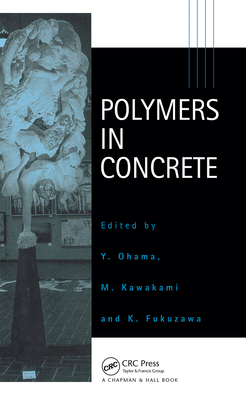商品描述
This is the first book to outline a basic philosophy of ecology using the standard categories of academic philosophy: metaphysics, axiology, epistemology, aesthetics, ethics, and political philosophy. The problems of global justice invariably involve ecological factors. Yet the science of ecology is itself imbued with philosophical questions. Therefore, studies in ecological justice, the sub-discipline of global justice that relates to the interaction of human and natural systems, should be preceded by the study of the philosophy of ecology. This book enables the reader to access a philosophy of ecology and shows how this philosophy is inherently normative and provides tools for securing ecological justice. The moral philosophy of ecology directly addresses the root cause of ecological and environmental injustice: the violation of fundamental human rights caused by the inequitable distribution of the benefits (economies) and costs (diseconomies) of industrialism. Philosophy of ecology thus has implications for human rights, pollution, poverty, unequal access to resources, sustainability, consumerism, land use, biodiversity, industrialization, energy policy, and other issues of social and global justice. This book offers an historical and interdisciplinary exegesis. The analysis is situated in the context of the Western intellectual tradition, and includes great thinkers in the history of ecological thinking in the West from the natural sciences, social sciences and humanities.
Keller asks the big questions and surveys answers with remarkable detail. Here is an insightful analysis of contemporary, classical, and ancient thought, alike in the ecological sciences, the humanities, and economics, the roots and fruits of our concepts of nature and of being in the world. Keller is unexcelled in bridging the is/ought gap, bridging nature and culture, and in celebrating the richness of life, its pattern, process, and creativity on our wonderland Earth.
Holmes Rolston, III
University Distinguished Professor, Colorado State University
Author of A New Environmental Ethics: The Next Millennium for Life on Earth (2012)
Mentored by renowned ecologist Frank Golley and renowned philosopher Frederick Ferr , David Keller is well prepared to provide a deep history and a sweeping synthesis of the "idea of ecology"--including the metaphysical, epistemological, and ethical aspects of that idea, as well as the scientific.
J. Baird Callicott
University Distinguished Research Professor, University of North Texas
Author of Thinking Like a Planet: The Land Ethic and the Earth Ethic (2013)
商品描述(中文翻譯)
這是第一本使用學術哲學的標準類別(形而上學、價值論、認識論、美學、倫理學和政治哲學)來概述生態學基本哲學的書籍。全球正義的問題不可避免地涉及生態因素。然而,生態學本身也充滿了哲學問題。因此,與人類和自然系統互動相關的全球正義子學科——生態正義的研究,應該在生態學哲學的研究之後進行。本書使讀者能夠接觸到生態學的哲學,並展示這種哲學本質上是規範性的,並提供確保生態正義的工具。生態的道德哲學直接針對生態和環境不公的根本原因:由於工業化所造成的利益(經濟)和成本(不經濟)不均等分配而侵犯基本人權。因此,生態學的哲學對人權、污染、貧困、不平等資源獲取、可持續性、消費主義、土地使用、生物多樣性、工業化、能源政策以及其他社會和全球正義問題具有重要意義。本書提供了一個歷史性和跨學科的詮釋。分析置於西方知識傳統的背景中,並包括來自自然科學、社會科學和人文學科的生態思考歷史上的偉大思想家。
Keller 提出了重大問題,並以驚人的細節調查答案。這裡有對當代、古典和古代思想的深刻分析,涵蓋生態科學、人文學科和經濟學,探討我們對自然和存在於世界中的概念的根源和成果。Keller 在彌合「是/應該」的差距、連結自然與文化,以及讚美生命的豐富性、其模式、過程和在我們奇妙地球上的創造力方面無人能及。
霍姆斯·羅爾斯頓三世
科羅拉多州立大學特聘教授
《新環境倫理學:地球生命的下一個千年》(2012)的作者
在著名生態學家弗蘭克·戈利和著名哲學家弗雷德里克·費爾的指導下,大衛·凱勒已做好充分準備,提供「生態學思想」的深厚歷史和廣泛綜合——包括該思想的形而上學、認識論和倫理學方面,以及科學方面。
J. Baird Callicott
北德克薩斯大學特聘研究教授
《像星球一樣思考:土地倫理與地球倫理》(2013)的作者
作者簡介
David R. Keller is deceased. He was Professor of Philosophy, University Professor of Environmental Studies, and Director Emeritus of the Center for the Study of Ethics at Utah Valley University.
作者簡介(中文翻譯)
大衛·R·凱勒已故。他曾擔任猶他谷大學的哲學教授、環境研究大學教授,以及倫理學研究中心的名譽主任。


























